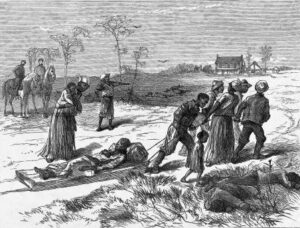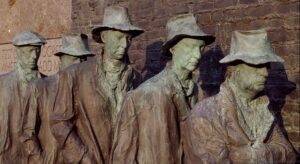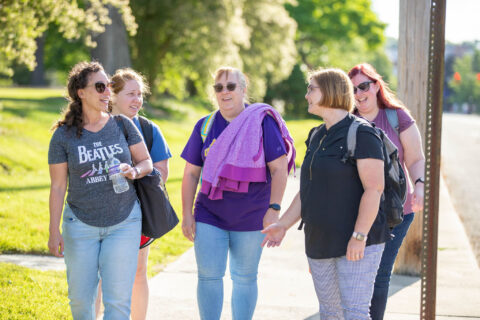
Prepping for Summer MAHG Classes
Did you know? Teaching American History partners with Ashland University to offer weeklong summer graduate courses that combine quality instruction with the opportunity to become part of a community of those who love to both learn and teach about America’s past. “For anyone who has only taken a MAHG course online, I would say the on-campus class takes it to a whole new level. . . . It’s by far the best intensive professional development experience out there,” says John Giltner. Other graduates of the MAHG program agree.
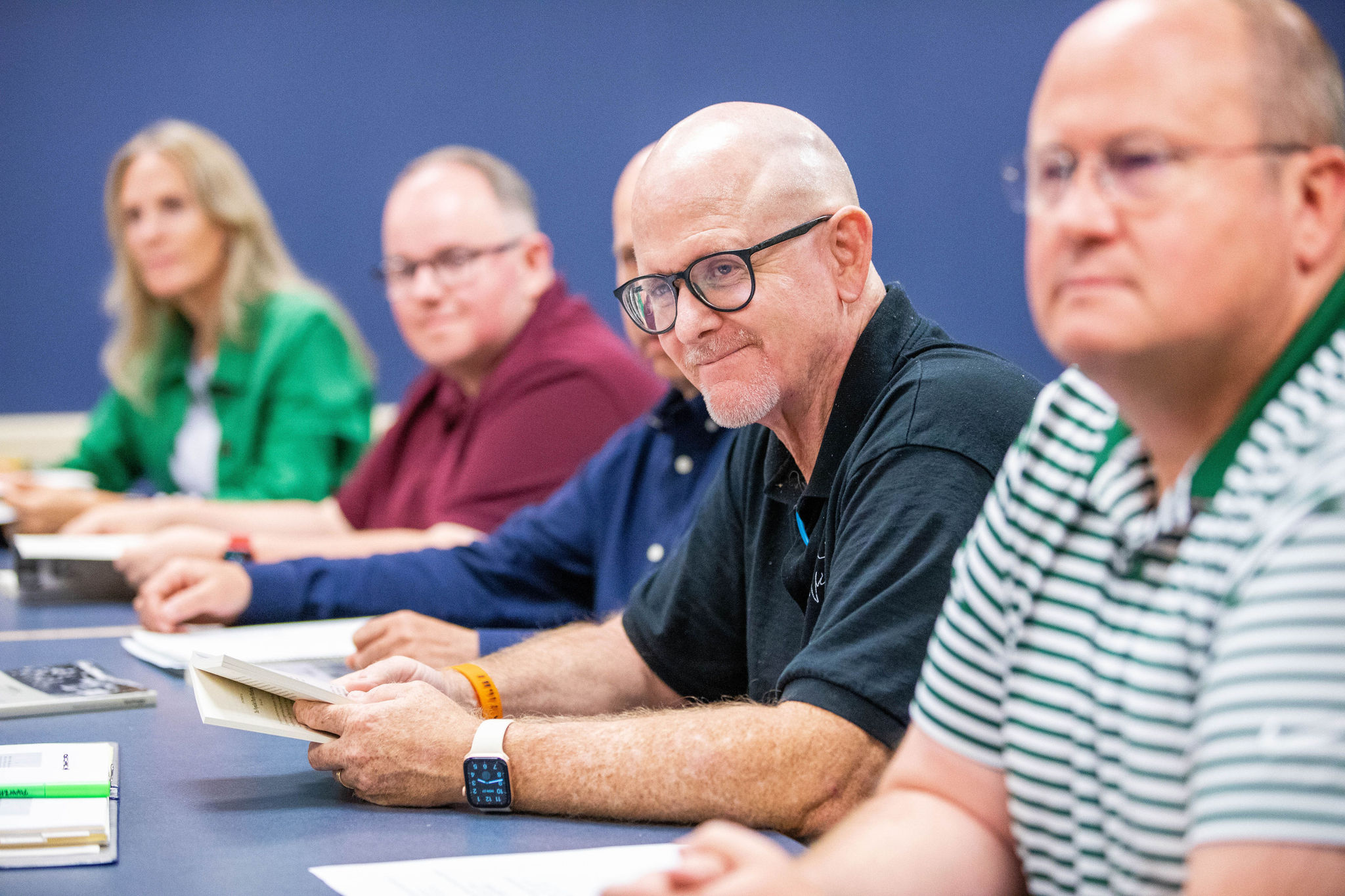
How can one marathon week away from home be more productive than an online course taken from your home office and steadily paced across eight weeks of the academic year?
We designed the marathon week for convenience! Meals and housing are provided. “Instead of all the other chores and things at home,” you just focus on history, says Gina Knowles. Dedicated history and political science buffs work hard, loving it. When you’re on campus, “you literally eat, breathe, and sleep history for a week with fellow history professionals,” says Robin Deck. “The discussion never ends. That bonding experience with fellow lovers of history cannot be replicated.”
Yet certain strategies can help you get the most from the experience. MAHG graduates offer this advice:
Before the course begins:

1. Complete the assigned reading ahead of the week—or complete as much of it as you can. If you have a free week or two between the end of your school year and the beginning of the course, that’s an ideal time to prepare, says John Talley, since it’s “not so far in advance that you forget the material.” If not, try to read ahead as you are finishing the school year. Write notes or questions in the margins to help you remember key ideas. You will want to reread portions of the reading each night before the next day’s classes. But you can think through the reading more carefully if you are reading it a second time.
Some grads add that reading ahead allows you time for after-dinner discussion sessions at one of Ashland’s new pubs. We remain noncommittal on that point, but offer this from Rusty Eder: “If you do all the reading ahead of time, it gives you the chance to engage in brilliant conversations with very smart people.”
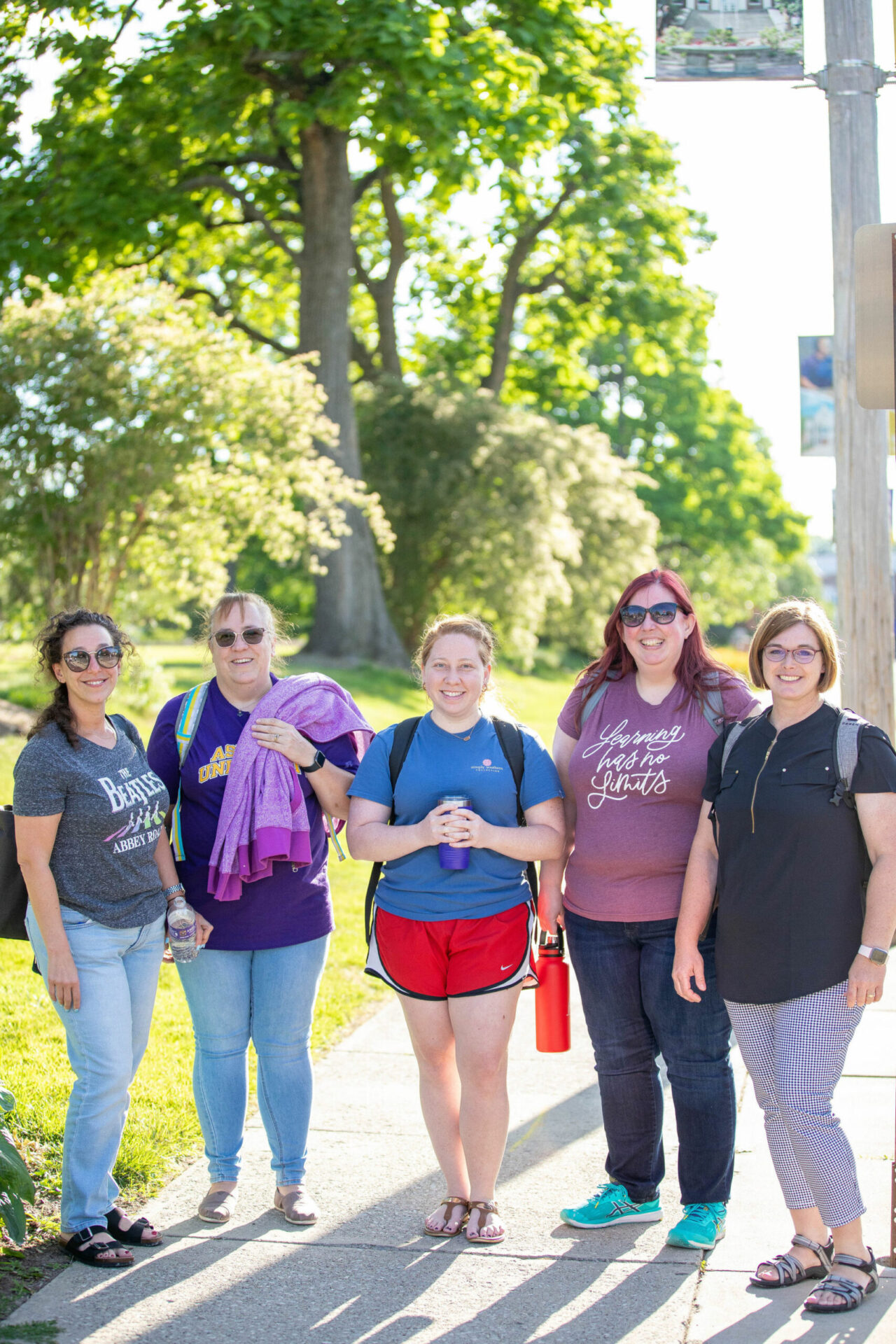
2. Plan to stay in the on-campus apartments. These are furnished with desks as well as sofas, dining tables for shared study sessions, and semi-private baths. While single rooms are available in Clayton Hall, you’ll benefit from sharing an apartment with other teachers. You’ll enjoy and learn from the conversation that develops during study breaks.
3. Bring a few items for comfort and convenience (especially if you are driving). The pillows provided with the basic linen set are new, inexpensive polyester foam versions from a big box store. If you need a pillow of a particular firmness, bring your own, Stacy Moses advises. Apartment kitchenettes include appliances, but you might bring a coffeemaker, favorite mug, bowl and/or set of flatware. A rolling backpack will prevent sore muscles, says Adena Barnette. “This way you can haul your books, a printed copy of your course packet, your electronic device, and extra drinks and snacks to class each day.” The walk between the apartments and the classrooms takes about ten minutes at a leisurely pace, with another five minutes to swing by the dining hall for breakfast before or lunch afterwards. To take advantage of the excellent recreation center on campus, bring workout clothing or swimwear.
4. Once you register for a course, you’ll be given access to Blackboard, where the readings—course packs—are found. Download the course pack and print it out. Get it bound at an office supply store, or hole-punched to fit into a three-ring binder. You’ll be flipping back and forth between pages and documents during seminar discussions and when writing essays on the open-book exams. After you complete the course, an organized and bound set of documents will help you review for the qualifying exam or find sources for a thesis or capstone. You’ll also draw excerpts from many of the documents to use in your own classes. Don’t worry about the highlighting and annotations you add; clean copies of the documents are available for download at TeachingAmericanHistory.org.
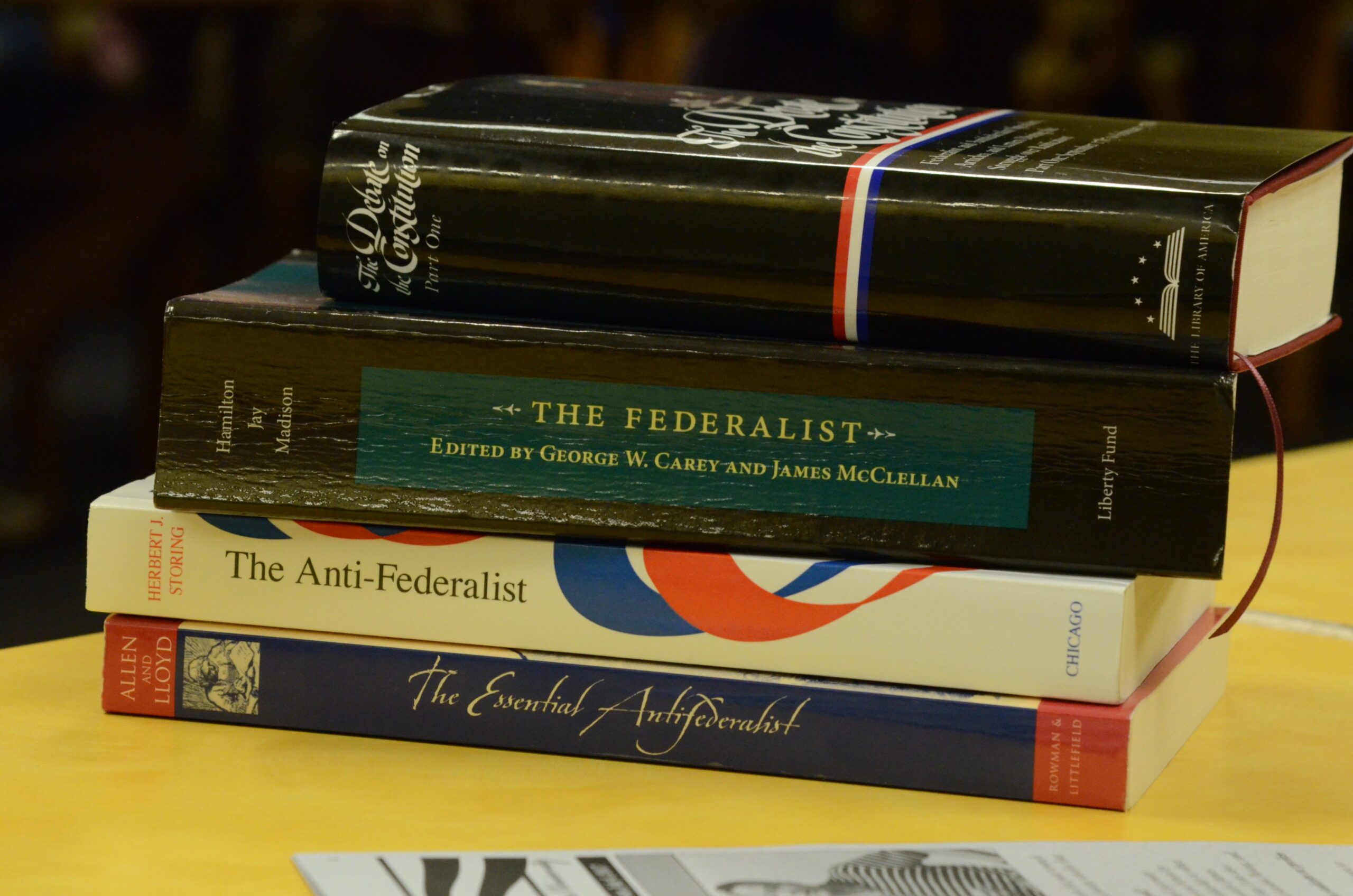
5. Several students recommended buying one copy of key texts and using it repeatedly whenever it is assigned in coursework. Most professors specify the text they prefer, and this helps everyone in the class to find passages being discussed. Still, if you stick with one text, your notes will aggregate in the margins as you revisit it. Selections from one text in particular, The Federalist, appear repeatedly on course syllabi. Some professors prefer the Signet Classics edition (with an introduction by Charles Kesler); others, and many students, recommend the edition in the Online Library of Liberty (edited by George W. Carey and James McClellan and published by the Liberty Fund) as the most complete and authoritative.
During your time on campus:
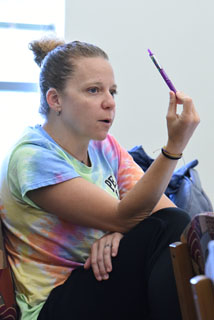
1. Seminars are designed as collaborative discussions. “Ask your questions and give your feedback,” John Talley says. “When you speak, you help the whole room and advance the learning environment,” adds Wesley Hall. Meanwhile, “being engaged yourself by professors who know how to engage students” will help you learn how to pass that excitement onto your students at home, Kate Pitrone points out.
2. “Take advantage of the opportunity to talk with the amazing faculty and wonderful program staff,” says Stacy Moses. Sitting down with professors at meals in the cafeteria or over coffee during the afternoon socials is “a great way to delve deeper into topics discussed in class,” says Kymberli Wregglesworth. Professors enjoy these interactions, and each of them “wants you to succeed and is there to help you reach your goals.”
3. The same advice applies to interactions with classmates. “Jump in with both feet!” says Moses. Students in the program often organize study sessions; “if you don’t hear of one, create one!” After the professors, “Your classmates are the second best resource for preparing for your final assessment,” says Barnette.
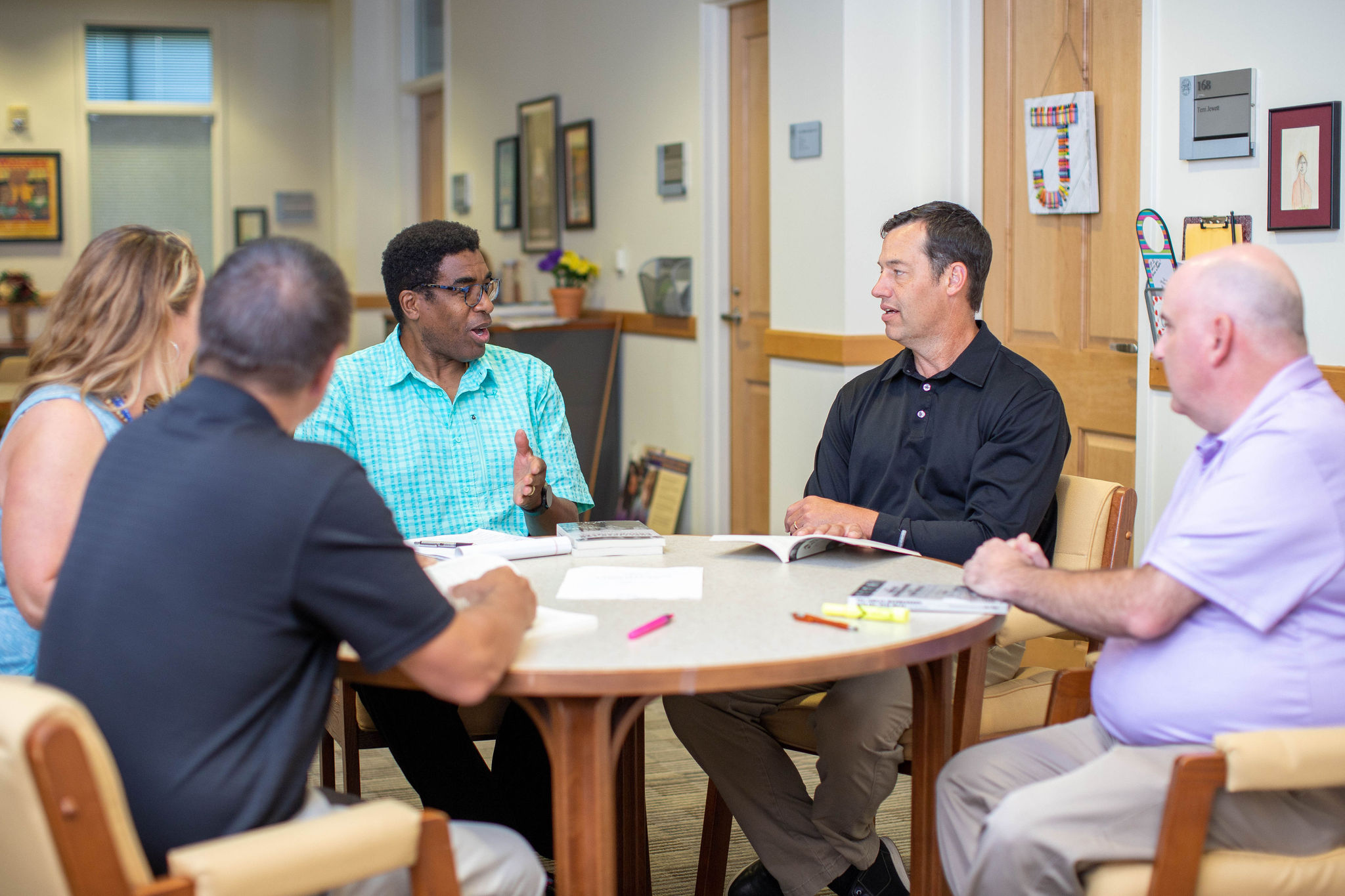
4. As you make friends with fellow teachers, you’ll trade pedagogical ideas and learn about other professional development opportunities. “Make as many friendships and connections as possible with other classmates and professors, because they’ll change your life,” says Nicole Keith. MAHG grads frequently speak of making “lifelong friendships” with colleagues they continue trading ideas with years later.
5. Josh Halpren advises those doing multiple weeks during a summer to “get into a routine that provides time for self-care. Use the awesome athletic facilities at Ashland, occasionally talk about non-history things at meals and get sleep. You need to be on most of the day in discussions and you don’t want to burn out.” Several grads recommend taking walks around “the beautiful Ashland campus” or at the nearby Freer Field trail, part of which takes you through shaded woods.
6. Coffee breaks fuel study. During classes, there will be a coffee station set up near the MAHG classrooms in the Dwight Schar College of Education. Starbucks-style lattes and other snacks are available in the Eagles’ Nest on the ground floor of the Student Center. At a further walk is Downtown Perk (145 Main Street), offering dessert and lunch items or Whit’s Frozen Custard. For those looking to take a mid-week break, downtown Ashland also offers plenty of shopping and restaurants
7. “Weave yourself into the fabric of Ashland. You get more out than you put in, but [first] you have to put in,” Talley says. “If you do multiple weeks, don’t go home. Stay on campus to stay focused,” he adds. If you need a Saturday getaway, there are “plenty of presidents’ houses in Ohio to visit,” Rhonda Watton notes, along with sites on the Underground Railway and other places of historic note.
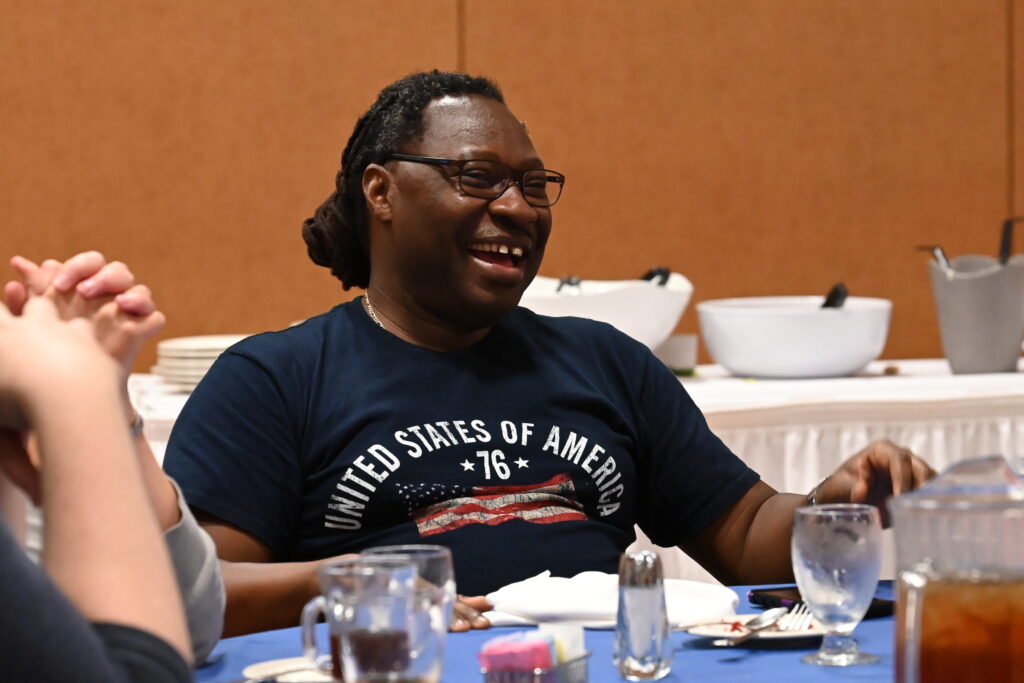
Tammy Hendershot sums it up: the MAHG program gives you not only a degree; it gives you “a community” with whom you learn to see the many connections between the American past and our present experience. This community will support you as you become a more knowledgeable and effective teacher. It may even, says Nilani Jawahar, give you the best inspiration your work could have: “a newfound love and appreciation for America.”

